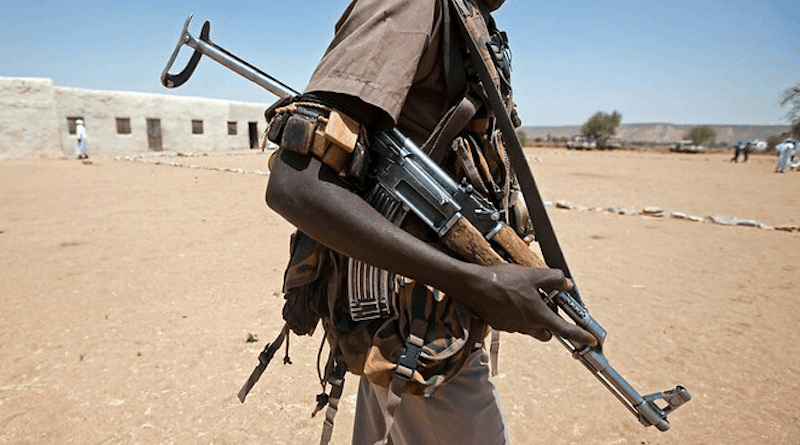The Impotent Americans And Sudan’s Civil War – OpEd
The failure of the meeting convened in Geneva by the United States and Saudi Arabia in mid-August to resolve the humanitarian crisis in the Sudan and the civil war that is causing it—and to put the country back on the path toward democracy—was a dramatic display of America’s impotence in the post-hegemonic world and the limits of American power in the world today.
The report of the UN expert group on the enforcement of the embargo on arms sales to Sudan and the investigation by Amnesty International have clearly established the involvement of external forces—particularly the United Arab Emirates (UAE) and Egypt—in arming the rival forces and have shown how crucial their role has been in fueling, escalating, and prolonging the conflict. But both Egypt and the Emirates are vital US allies in the Middle East, especially now in the midst of the Gaza War. So, the United States has no real leverage to use when it comes to their meddling in the Sudanese civil war. Washington can’t get the two rival Sudanese generals to engage in serious and meaningful negotiations, nor can it get the external actors that are backing them to stop the arms deliveries that are perpetuating the conflict.
The civil war in Sudan erupted on 15 April 2023, between the Sudanese Armed Forces (the SAF, commanded by General Abdul Fattah al-Burhan) and the Rapid Support Forces (RSF, commanded by his rival, General Mohammed Hamdan Daglo, known as Hemedti). It was just the latest in a series of coups, internal armed conflicts, and mass mobilizations of civil society organizations seeking to create a democratic political system, that followed the overthrow of the military regime led by General Omar al-Bashir that ruled Sudan from 1989 to 2019.
In 2019, the two generals worked together to overthrow al-Bashir, and in 2021, cooperated again to bring down a short-lived civilian-led government and establish an interim regime under their joint control, with al-Burhan as head and Daglo as his deputy. They were supposed to oversee the implementation of a framework agreement for the restoration of democracy signed in December 2022. Instead, in April 2023, al-Burhan tried to integrate the RSF into the Sudanese Armed Forces, which ignited the civil war.
A variety of external actors have provided funding, military training and equipment, and political support to one or both of these rival forces. According to investigative reporters, the Wagner Group was active in Sudan, at least since 2017 and, more recently, was engaged in training both SAF and RSF troops. The interim regime reportedly received billions of dollars in funding from the Emirates and Saudi Arabia and, in return, Sudanese troops were sent to fight on their behalf in Yemen.
Since the civil war erupted, the Emiratis have backed the RSF and have sent large quantities of sophisticated weaponry and other military assistance to Daglo’s forces and the militias that have joined him. And other external actors have intervened in the conflict as well. Russia has provided millions of dollars-worth of military aid to the RSF in exchange for gold to help fund the war in Ukraine and mercenaries from the Wagner group were deployed to support Daglo. But more recently, Russia has shifted to supporting al-Burhan, primarily due to his promise to grant them a naval base on the Red Sea coast. Egypt, whose president has a close relationship with al-Burhan, is providing substantial military assistance to the SAF—including military drones—and has sent Egyptian soldiers to Sudan to train and support his troops.
The intervention of external actors in the civil war has created a stalemate in which neither side can achieve its aims by military means, leading to a protracted struggle that is unlikely to be settled on the battlefield. The RSF has used its advantages in manpower and its familiarity with mobile warfare to expand its control over much of the west and center of the country, at least in part due to major UAE arms supplies through Chad. But the SAF has also received a continuing flow of arms from its external supporters, particularly from Egypt, and continues to hold the north and east of the country, as well as military bases in other parts of Sudan.
The evolving military situation and the success of Hemedti’s diplomatic efforts to win over the leaders of neighboring countries has led al-Burhan to withdraw from the Intergovernmental Authority on Development (IGAD) and from the “peace process” conducted in Jeddah, Saudi Arabia, and led by Saudi Arabia and the United States.
General al-Burhan also refused to participate in the recent meeting in Geneva, despite the strenuous personal efforts of American Secretary of State Antony Blinken and President Biden’s Special Envoy to Sudan Tom Perreillo to convince him to attend. He cited the failure of the RSF to implement the Jeddah agreement, in which both sides agreed to restrict their military operations to allow for substantive negotiations to begin, although neither side has honored the agreement.
For better or for worse, Washington has lost its global hegemony in the face of challenges from Russia, China, India, South Africa, Iran, North Korea, Venezuela, Brazil, and other contending powers, and is never going to enjoy the kind of global power it had in the 1990s and early 2000s, after the collapse of the Soviet Union ever again. Realistically, there is very little that the US government can actually do in Sudan, unless it is willing to divert some of its limited military, economic, and diplomatic resources from Ukraine, the Middle East, and Taiwan to Africa, and to jeopardize its relations with important Middle Eastern partners like Egypt and the UAE; this is unlikely, regardless of who wins the elections in the United States this November.

